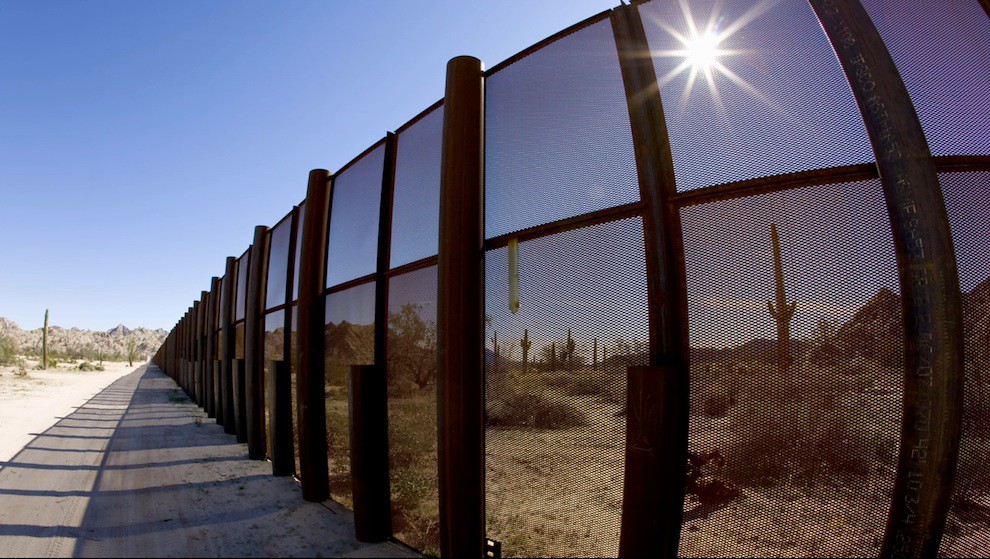
No one, I think, wants to read a blog by a Texican all about present-day, US immigration debates. Too predictable, right?
Not quite.
Although I was born in a bordertown (Brownsville, Texas), I do not come from immigrant ancestors, in the recent immediate sense of the issue. My maternal and paternal Hispanic families pre-date the United States’ aquisition of the southwest. To borrow Gloria Anzaldúa’s expression: the border crossed us, literally.
Nonetheless, the issue of immigration strikes me in a very personal and intimate way. Some of it is complicated. Some of it is not. One part of it is pretty weird: I was an illegal immigrant — living in Mexico — for a few years in the 90’s. I attended 5th and 6th grade there, in Mexican public schools, without a Visa. More on that later, perhaps.
For all these reasons, I am and am not your stereotypical Latino writing about immigration. But enough about me, for once.
Here are two excellent lectures on the topic of immigration given by Catholic pastors.
The first is the most recent one, from Archbishop Aquila, given last night at Regis University. It is a meaty, substantive, and multifaceted talk. Here is Aquila’s crucial third point:
The moral theologian Johannes Messner wrote in 1958 that “the family is prior to the state. It holds natural rights which the state is bound to recognize.”
Families are the building blocks of every culture and all of social life. The union of man and woman in marriage is a relationship ordained and protected by God himself. The children born of that union always have the right to a mother and a father, who can care for them and love them. In fact, Messner says that the “prominent task of the state” is “to make it possible for families to fulfill their natural function.”
Immigration policy which respects the sovereignty of the family makes it possible for husbands and wives, and their children, to obtain visas together, easily, even when only the father will work. Respecting the family means finding alternatives to deportation when families will be torn apart by it. And government always has the responsibility to ensure that all workers can earn a just wage, one which allows them to be open to life, and to support the children God gives them.
Today, immigrants are too often viewed solely through a financial lens. They are viewed as workers, and reduced merely to their economic potential.
They are treated as objects. But immigrants are members of families, and those families are essential to our social order. They have something to contribute to our national order, because they are human beings, endowed with real dignity. Immigrant families have always contributed to the richness of our culture—particularly the richness of American Catholic culture.
Read it all here, at the Archdiocese of Denver’s website.
The second talk was given at Franciscan University of Steubenville by Fr. Pablo Migone, a former classmate of mine, sponsored by Latinos Por Cristo, a campus organization we helped found in 2003.
Fr. Migone’s talk is also excellent, and makes use of other pastoral sources (especially Archbishop Gomez), with useful additional resources at the end. But the talk is grounded in his personal, pastoral experience, retold with conviction and power:
For the past three and a half years I’ve been working with immigrants in southern Georgia, most of them come from Mexico, about half of them are here without proper documentation. Some enter the country legally and overstay their visas, others make the dangerous crossing through the desert or the river led by a “coyote,” paying at times thousands of dollars and leaving them with a traumatizing experience of which only two people have spoken to me about.
I had a very faithful parishioner say to me once, “Father, the church should not minister to illegals, you are condoning their behavior by ministering to them.”
I looked at this very concerned parishioner and calmly said, “Twice a month I celebrate Mass and hear confessions at the state prison. I go because there are Catholics in need of being ministered. I make no statement whatsoever regarding their past. I do not care if they murdered, dealt drugs or stole. I am there because at the prison there are human beings in need of Christ, in need of redemption and in need of hearing the Gospel.”
This gets to the heart of the immigration issue. The Church does not advocate nor favor undocumented immigration, the Church does not want the border with Mexico to be opened and allow everyone to come in, but the Church advocates the respectful treatment of immigrants, even if undocumented, because every soul, including the soul of an undocumented immigrant, has infinite value and dignity.
Read the whole thing here, at Fr. Migone’s blog.
Both of these pastors, an archbishop and a young priest, see immigration through the eyes of the Church, the eyes of Christ. Archbishop Aquila goes so far as to remind us that the Holy Family is an immigrant family, too.












